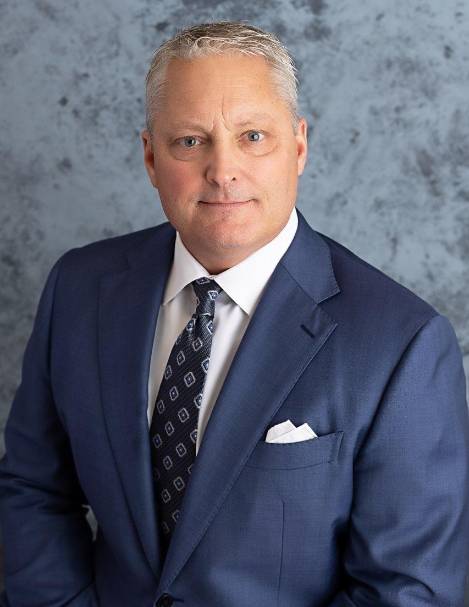Ernest Cabule
By Deborah Walker
TNCPNEWS
INGHAM COUNTY, MI – Ernest “Ernie” Cabule, a COVID-19 survivor, says he is healthier now than ever. The active 70-year-old retiree likes to exercise and enjoy his favorite recreational activities. When the weather permits, Cabule likes to go for a five-mile walk and participates in a swim class once a week. Cabule may seem invincible, but in March 2020, his life almost ended.
The Diagnosis
In early 2020, Cabule received a positive COVID-19 test result. Initially, Cabule was diagnosed with double pneumonia. After a long and worrisome wait, his test came back. It seemed like it took forever to get the COVID test results, Cabule admits. He said he does not recall an exact date when he got his results back, but it was about four weeks after he was admitted. As only the second person admitted to Sparrow Hospital in Lansing, MI., Cabule’s chances of survival looked grim. Cabule explained that his condition turned severe once his kidneys began to fail.
“I was hospitalized for so long because of a secondary condition that developed while I was there. I developed a bedsore on my tailbone that became infected and began to spread. I had emergency surgery to address this issue complicated by my weakened physical condition due to COVID,” Cabule informed.
The doctors tried a variety of medications on Cabule with mixed results. They consulted with him about being intubated, and he agreed. He was under for about two weeks. After being taken off the ventilator for one day, they put him back under for another few days on April 2, 2020, through April 18, of that same year.
“I don’t know where I found the strength to survive. They called my wife Janice, twice to tell her to get my affairs in order and that I probably
would not survive. I tried not to stress myself more because it would not help my recovery. I tried to treat each day as a new adventure, and I was going to try to get better every day,” said Cabule.
Cabule said his family was essential in his survival because of their love and support. His wife was a strong advocate, checking his condition with the doctors and nurses daily. She also encouraged him when he was concerned about possibly losing his hands and feet.
“I had no feeling in my feet and hands, and I had heard medical reports on television about patients’ limbs being amputated. I was trying to come to grips with myself about possibly being a quadriplegic,” Cabule explained. “She told me I would walk again when I was too weak to sit in a chair.”
My wife contracted COVID-19 too
Cabule’s COVID-19 journey took a terrible turn when he learned that his wife, Janice Cabule, was also hospitalized. That was his worst day, he added. He knew her fate after being taken off the ventilator the second time. Cabule said he was advised that Janice was also in the hospital due to the virus.
“I felt terrible that I had caused her to suffer this horrible disease. As it turned out, her case was not nearly as severe as mine, and she was only in the hospital for about one week,” noted Cabule.
Sparrow had a no-visitor policy; this was the first time he had seen her since being admitted about three weeks prior. On one of his better days, she was released from the hospital. The staff brought her to his room to visit him before she was discharged, Cabule recalled.
The aftermath of COVID-19
Although he was released from the hospital on May 19, 2020, Cabule said he continued to have medical appointments until the end of October 2020.
“I still had various medical issues to deal with. A “pic” line in my arm led into my heart cavity, where an antibiotic solution was administered 24-7. That bag had to be changed daily. I also had a tube running from the site of the wound on my backside that had to be monitored. The tube was attached to a pump to remove the fluid from the wound, running constantly, even when I was sleeping. After four weeks, I could discontinue the antibiotic treatment, and the “pic” line was removed from my arm. A visiting nurse would come by every day for a while to change my dressings, and then as my condition improved, to every other day until the wound healed enough to remove the pump,” Cabule recalled.
“I lost thirty pounds while in the hospital. I was so weak that I had to learn to walk again. First, with a walker and then a cane, I could finally walk a mile with no assistance near the end of November,” Cabule stated.
Cabule said that he suffers from symptoms years after his diagnosis. Although he has never discussed his symptoms with his doctor, the survivor said he suffers from brain fog. According to Cabule, COVID brain is a condition where he cannot readily recall information he knows. Cabule said that he still suffers from COVID symptoms years after his diagnosis.
“It is a problem sometimes. It’s frustrating at times because I don’t know if it results from old age or the virus,” Cabule informed. In addition to memory loss, Cabule said he also has Post Traumatic Stress Disorder (PTSD). According to Michigan Medicine (University of Michigan), veterans of the armed forces who have participated in combat operations are frequently linked to PTSD. However, the condition is not reserved just for veterans; millions of Americans have PTSD, informs the organization.
“One unexpected episode of PTSD struck me at my fraternity chapter’s 50th-anniversary ball. A picture of me being released from the hospital that I had seen many times before suddenly triggered me, and a flood of memories struck me as I recalled the horror of my experience.”
Cabule is an Alpha Phi Alpha Fraternity, Inc. member and belongs to the Kappa Delta Lambda chapter. At his event, Cabule explained that he was the next scheduled speaker. He feared he could not pull himself together in time, but he did.
“I certainly didn’t want to suffer a breakdown in front of 300 guests,” Cabule said.
Current Condition
While in the hospital battling COVID, Cabule was also diagnosed as diabetic. Cabule said today he is healthier than ever, thanks to a diet and lifestyle change. Even though he still loves his favorite snacks, such as ice cream and cookies, he has cut back on portions. For those suffering from COVID or its effects, Cabule advises not to give up. He said treatment now is much better than when he went through it.
“The only advice I can offer is to not stress over what you cannot control; the added stress will only worsen your situation. Also, make sure that you have a strong advocate in your corner to ensure that you get your best care, and be nice to your nurses; they are a godsend,” informed Cabule.
Cabule is now an advocate for the vaccine. He encourages others to get the shots and do whatever it takes to protect themselves from this disease.
This story is two of a three-part series. Sociologically Speaking with Rina Risper, vodcast will also be recording three episodes featuring Nellie Corzo, Ernest “Ernie” and Janice Cabule and mental health therapist and owner of Live, Love & Laugh Family Service, Jaynaya Barlow. The vodcast and stories are sponsored in part by the Tyson Family Foundation, Ingham County Health Department, Capital Area Health Alliance, and the Ingham County Health Equity Council (HEC). This series will address COVID-19-related inequities and risk factors among Black, Indigenous, and People of Color (BIPOC) communities within Ingham County.



